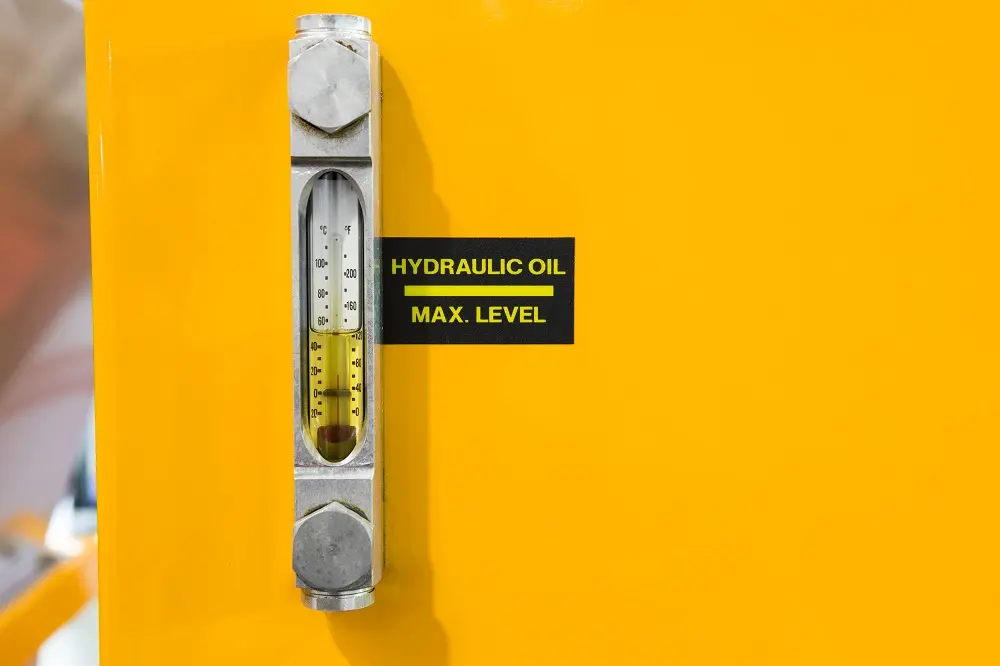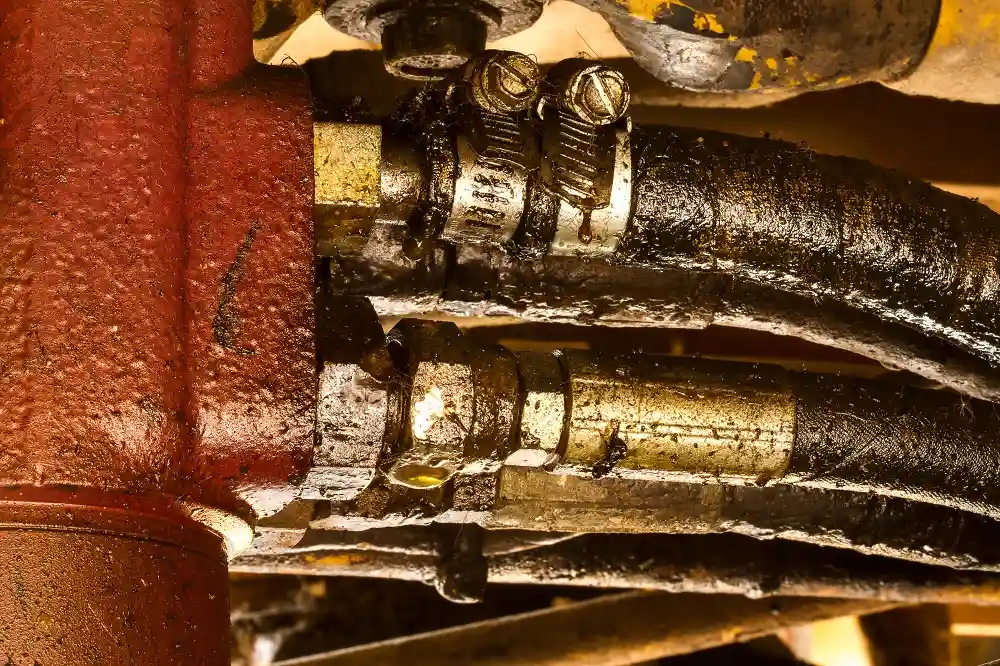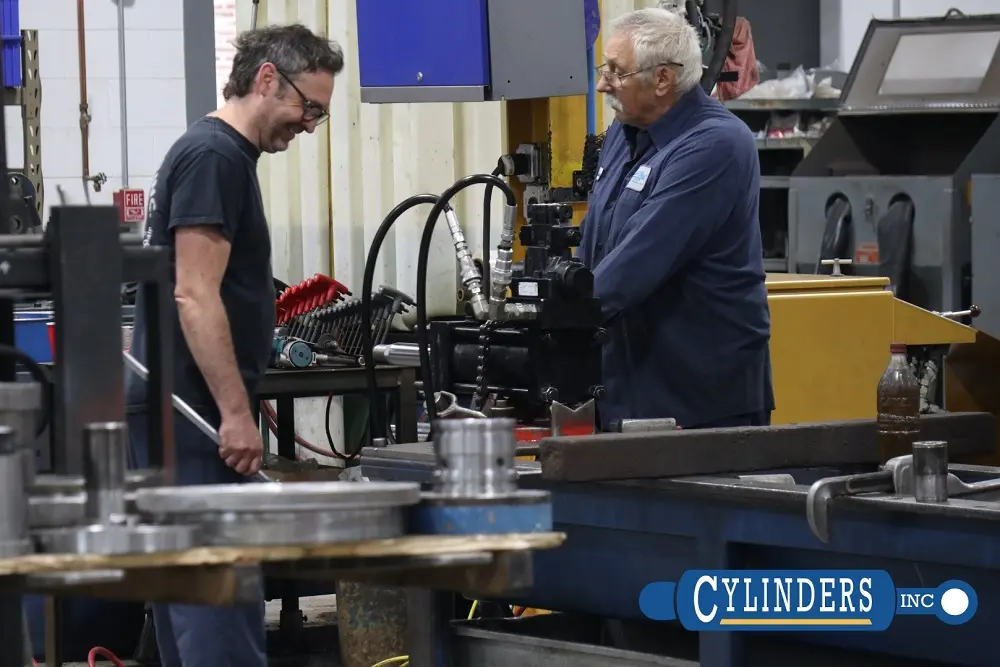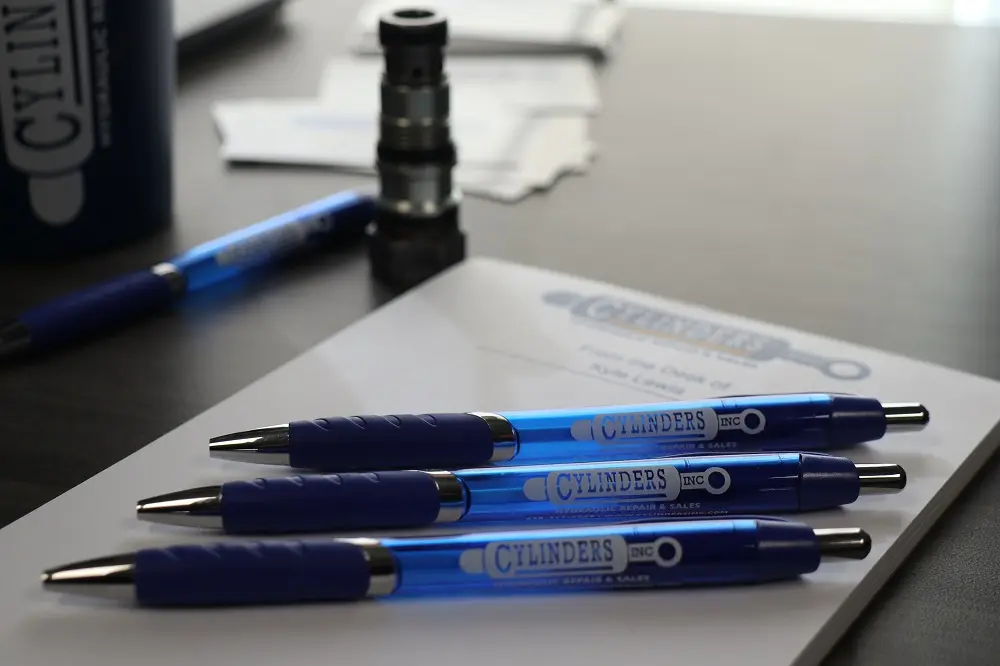Dive deep into the types of hydraulic oils, the impact of wrong choices, and expert tips for changing your system's oil in this comprehensive guide!

As a leading hydraulic cylinder repair service provider, our team at Cylinders, Inc. knows that the lifeblood of any hydraulic system is its hydraulic oil. This crucial component not only lubricates but also transfers power, protects against wear, and even aids in cooling the system. The optimal hydraulic oil can make the difference between a system that runs smoothly and one that faces frequent breakdowns, complicating the repair process. Given its significance, how do you ensure you’re making the right choice? Dive into this comprehensive guide, and if you’re ever in doubt, our experts are just a call away.

The market is flooded with various hydraulic oils, each tailored for specific applications and environments. To optimize the hydraulic system filtration, make sure to pick the perfect hydraulic fluid for your application.
Mineral-based hydraulic oils are the backbone of the hydraulic industry. Originating from the refining process of crude oil, they’ve been the go-to choice for many hydraulic systems for decades. Their widespread popularity stems from their balanced performance metrics and cost-effectiveness. Mineral oils are versatile and can be used in many applications, from heavy machinery to industrial hydraulic equipment. They offer good lubrication properties, resistance to oxidation, and a decent temperature range. However, it’s important to monitor them for signs of degradation, as contaminants can affect their performance over time.
Synthetic oils come from meticulous engineering in state-of-the-art labs. Designed to cater to extreme conditions, these oils are perfect for environments that experience very high or very low temperatures. While synthetic oils have a higher price tag, their performance benefits often justify the investment. They offer superior viscosity stability, extended service life, and reduced wear and tear on hydraulic components. Plus, they can be tailored to specific applications to ensure that the hydraulic system gets the best possible lubrication and protection.
In environments where safety is key, especially concerning fire hazards, water-based hydraulic fluids rise to the occasion. These oils have a significant amount of water to provide them with excellent fire-resistant properties. While they’re safer in high-risk environments, they come with unique challenges. Water-based oils may not offer the same lubrication level as mineral or synthetic hydraulic oils which requires more frequent maintenance and checks. They may also be susceptible to microbial growth, so it’s crucial to ensure that the system remains contamination-free.
As the world becomes more environmentally conscious, biodegradable hydraulic oils have carved a niche for themselves. These oils break down naturally when exposed to the environment, reducing the risk of long-term environmental damage in case of spillages. They’re especially ideal in applications near water bodies or sensitive ecosystems. Biodegradable oils are formulated from natural sources like vegetable oils or synthetic esters. While they offer excellent performance and environmental benefits, they can be more expensive than traditional oils. Regular checks are also key to ensure they maintain their properties over time.


Selecting the wrong hydraulic oil can have many repercussions on a hydraulic system that often lead to inefficiencies, increased maintenance costs, and even catastrophic failures. Consider that hydraulic oil is more than just a fluid; it’s the lifeblood of the system, ensuring smooth operations, reducing wear, and acting as a conduit for power transfer.
When the wrong oil is chosen, the first casualty is often the system’s efficiency. Incorrect fluid viscosity grade can impact the fluid flow, making the system work harder to achieve the same results. This increases energy consumption and can lead to overheating, which further degrades the oil and can damage sensitive components.
Moreover, the protective layer that the oil provides between moving parts can be compromised if the oil’s viscosity isn’t optimal. This could result in increased wear and tear which reduces the lifespan of critical components like piston pumps, internal gear pumps, valves, cylinders, and seals. Over time, this can result in frequent breakdowns, leading to increased downtime and higher replacement costs.
Another often overlooked consequence of using the wrong hydraulic oil is its impact on seals and gaskets. Different oils have varying chemical compositions, and not all seals are compatible with all types of oils. An incompatible oil can cause seals to swell, shrink, or even degrade, leading to leaks and system contamination.
Speaking of hydraulic contamination, the wrong oil can also introduce impurities into the system. These contaminants can cause blockages, reduce the efficiency of filters, and even lead to component failures. Furthermore, certain oils, especially those with incompatible additives, may result in foaming that reduces the oil’s ability to lubricate and can introduce air into the system, leading to erratic operations.
Lastly, there’s the environmental impact to consider. Using the wrong oil, especially one that’s not environmentally friendly in an application where it’s required, can lead to environmental damage in case of leaks or spills. This harms the environment and can lead to hefty fines and a tarnished reputation.

Changing the hydraulic oil in a system is more than just a simple drain-and-fill operation. It’s a critical maintenance task that, when done correctly, can extend the life of your hydraulic system and ensure its optimal performance.
Here’s a comprehensive guide to help you navigate this process:

Explore articles on cylinder repair, maintenance best practices, and manufacturing insights.
To all who’ve been part of our journey this year,As we come to the close of another year, I would like to take a moment to thank you — our valued customers, partners, and colleagues — for the continued trust you place in Cylinders, Inc. Every day, our team has the privilege of supporting the businesses that keep America’s construction, industrial, and manufacturing sectors moving. It’s a responsibility we take seriously, and one we work hard to uphold with every repair, inspection, and consultation.
When winter takes hold across the United States, it’s more than just a dusting of white that greets commuters, it’s a full-scale challenge to keep roads open, fleets operational, and heavy machinery ready. Many U.S. states see between 40 and 70 inches of snow each year, with Vermont averaging about 89 inches annually and Michigan […]